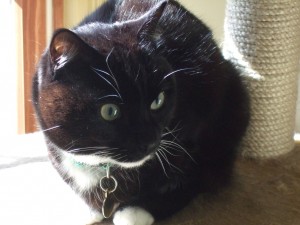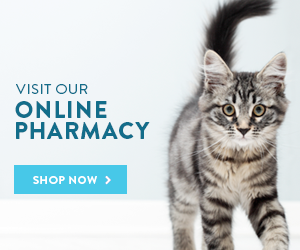How to help your cat have pleasant veterinary visits
From the American Association of Feline Practitioners.
Fear is the primary cause of misbehavior. Knowing this can help prevent problematic veterinary visits.
GETTING THE CAT INTO THE CARRIER – Keep the carrier out in the home. Put treats inside. Train cats to view the carrier as a safe haven and “home away from home.” A quick response is crucial in case of disaster or emergency. Carriers that have both a top and a front opening are best. Top-loading carriers allow for stress-free placement and removal of the cat. A removable carrier top enables cats to be examined while remaining in the bottom half of the carrier. Do not “dump” a cat out of the carrier.
ADJUSTING TO CAR RIDES – Always put the cat in a carrier or other safe container. Take the cat for regular car rides, beginning with very short ones, to places other than the veterinary hospital. To prevent car sickness, do not feed before traveling. Reward verbally, with positive attention, and with treats.
PLEASANT VETERINARY VISITS – Bring along the cat’s favorite treats, toys, and blanket. Perform regular home maintenance procedures, including grooming, nail trimming, teeth brushing. “Play vet” procedures that mimic temperature taking, ear cleaning, and pilling can help cats better adjust to the veterinary hospital and to future home care when necessary. Regular trips to the veterinary hospital for “fun” visits involving no examinations or procedures provide owners and staff with the opportunity to reward the cat with praise and food treats.
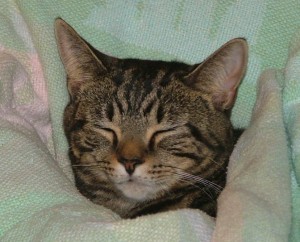
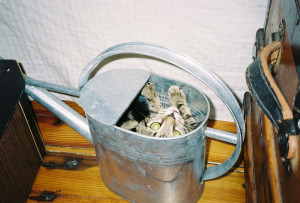 Over the last two years, Olive had begun to show some signs of hyperthyroidism. She was overly playful for her age, she began frantically searching for food, her weight declined despite being hungry and eating. However it wasn’t until recently that her blood work actually agreed that she was indeed suffering from hyperthyroidism or overactive thyroid gland.
Over the last two years, Olive had begun to show some signs of hyperthyroidism. She was overly playful for her age, she began frantically searching for food, her weight declined despite being hungry and eating. However it wasn’t until recently that her blood work actually agreed that she was indeed suffering from hyperthyroidism or overactive thyroid gland.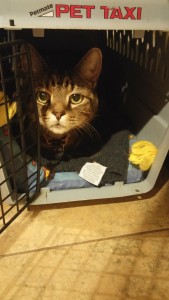 So, Olive sits patiently waiting for her appointment at VCA South Shore Animal Hospital for Radioactive Iodine Treatment. Don’t tell her but unfortunately it is not for another week. Although she is very sweet, she is not always the brightest bulb! We will get back to you with her results after her treatment.
So, Olive sits patiently waiting for her appointment at VCA South Shore Animal Hospital for Radioactive Iodine Treatment. Don’t tell her but unfortunately it is not for another week. Although she is very sweet, she is not always the brightest bulb! We will get back to you with her results after her treatment.